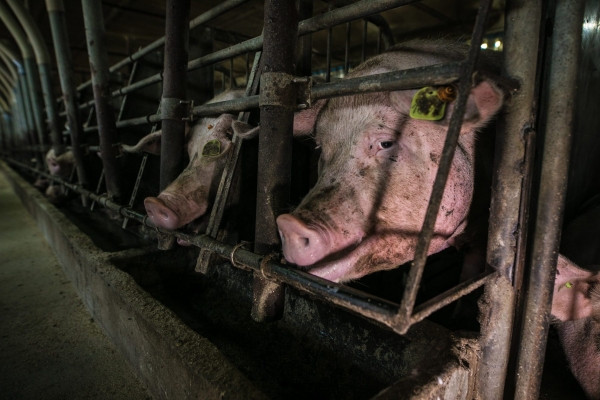
The image of climate change is often dominated by the melting ice caps, rising sea levels, and CO2 emissions. Indeed, they are one of the largest and most dire problems, but they somewhat occlude the other problems at hand and tend to undermine the importance of individual action. The fact is that livestock is responsible for 7.5 billion tons of CO2 (carbon dioxide equivalent) per year, 14.5% of annual global emissions. This is not taking into account all the deforestation and greenhouse gases (GHG) that occur due to animal agriculture. And when those factors are considered, it accounts for more than 51% of annual GHG emissions, according to the Worldwatch Institution.
The fact that factory farming accounts for more than half the total GHG emission should be quite astonishing because, stereotypically speaking, GHG emission often connotes emissions from cars, factories, or other fossil fuel industries but most certainly not eating animal products. Consider this though: there are 26 billion chickens, one billion cows, one billion sheep while, in comparison, there are eight billion humans. The world is an Animal Farm.
There is no doubt that climate change is an extremely time-sensitive matter. Especially with the release of this year’s stark IPCC climate assessment report and the recent COP26 conference in Glasgow, the urgency of the matter is only amplified. Notwithstanding the ongoing alarm, annual global meat consumption is still on the rise: the United Nations Food and Agriculture Organization projects more than 1% increase in global meat consumption in 2021. At this rate, GHG emission from food production is expected to rise 60% by 2050.
Despite the pressing circumstances, it is nevertheless necessary to state that going vegan is a fairly challenging undertaking for reasons that might not be as trivial as one might imagine. Anthropologically, animals has been the diet of human species since prehistoric times, and thus the ways in which humans have evolved biologically—the massive size of the brain, the shape of canine teeth, and other intricacies—is closely intertwined with the meat-based diet. So, to suddenly eliminate meat from the equation is not only arduous but counterproductive from the evolutionary point of view.
A sociological study from the University of Pennsylvania suggests that “if you want to begin changing the culture, you need at least 25% of the people in a community on your side,” that is to say the magic number 25 is the critical point sufficient to start a positive feedback loop across a community. Currently, there is approximately 7.9 billion human population while a mere 79 million are vegan, a proportion far too minuscule to cause a shift in the societal norm. As Roy Scranton puts it, “We are not free to choose how we live any more than we are free to break the laws of physics. We choose from possible options, not ex nihilo.” In other words, one cannot ask for a “vegan option” in a restaurant where it is not an option. One cannot abide by the strict no-meat diet in a culture where no-meat diet is not an option. Given that eating is a reflection of a culture—a rather long one dating from prehistoric times—being vegan is therefore like breaking the laws of physics.
The studies on the impact of veganism on climate change make different conclusions: one study suggests veganism only reduces GHG emission by 3% while others say up to 30%. Granted, the quantitative analysis on the impacts of veganism is not so cut and dry; however, “Emission should not be viewed as the only metric of sustainability. Impacts of veganism on reducing deforestation, soil acidification, water quality, and broader factors also need to be well considered,” said Matthew Harrison, of the Tasmanian Institute of Agriculture.


